
Just a select few have been able to travel up to space, enjoying a glimpse of our planet from orbit in spacecraft or at the International Space Station.
It’s a sight that would really make you question a lot about life back on solid ground, and that’s exactly what happened for one cosmonaut during his time in space.
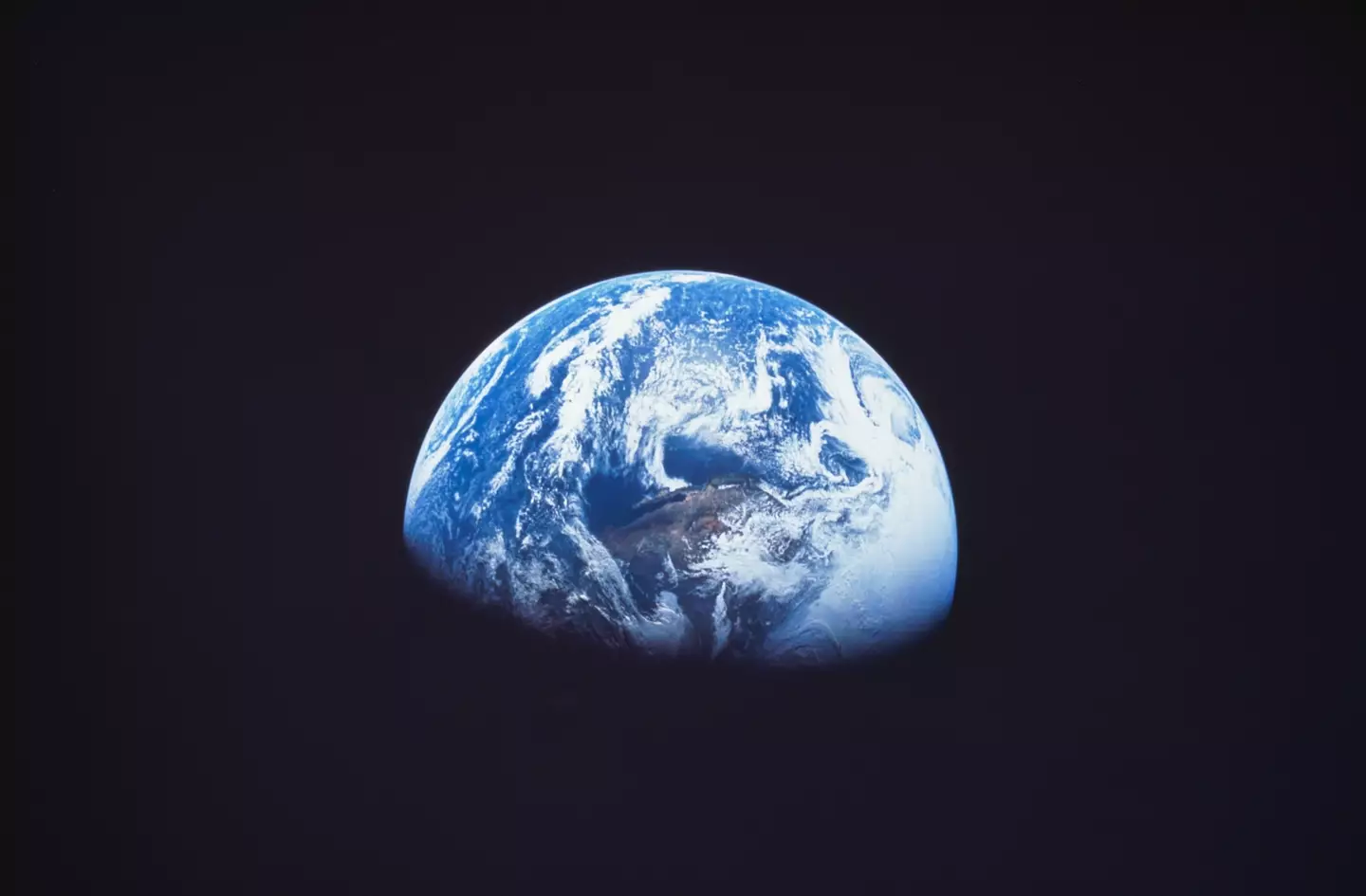
Seeing Earth from space is known to cause the ‘overview effect’ (Getty Images)
Once there, he experienced what scientists now refer to as the ‘overview effect’, which is a cognitive shift that some astronauts report to have experienced while viewing Earth from space.
It’s said to cause an overwhelming appreciation and connection to other people and to Earth as a whole and can change the observer’s own value system.
It’s an effect that is known to make worldly worries seem insignificant and displays Earth as one united planet.
Ron Garan is another astronaut who has experienced this phenomenon after spending 178 days in space.
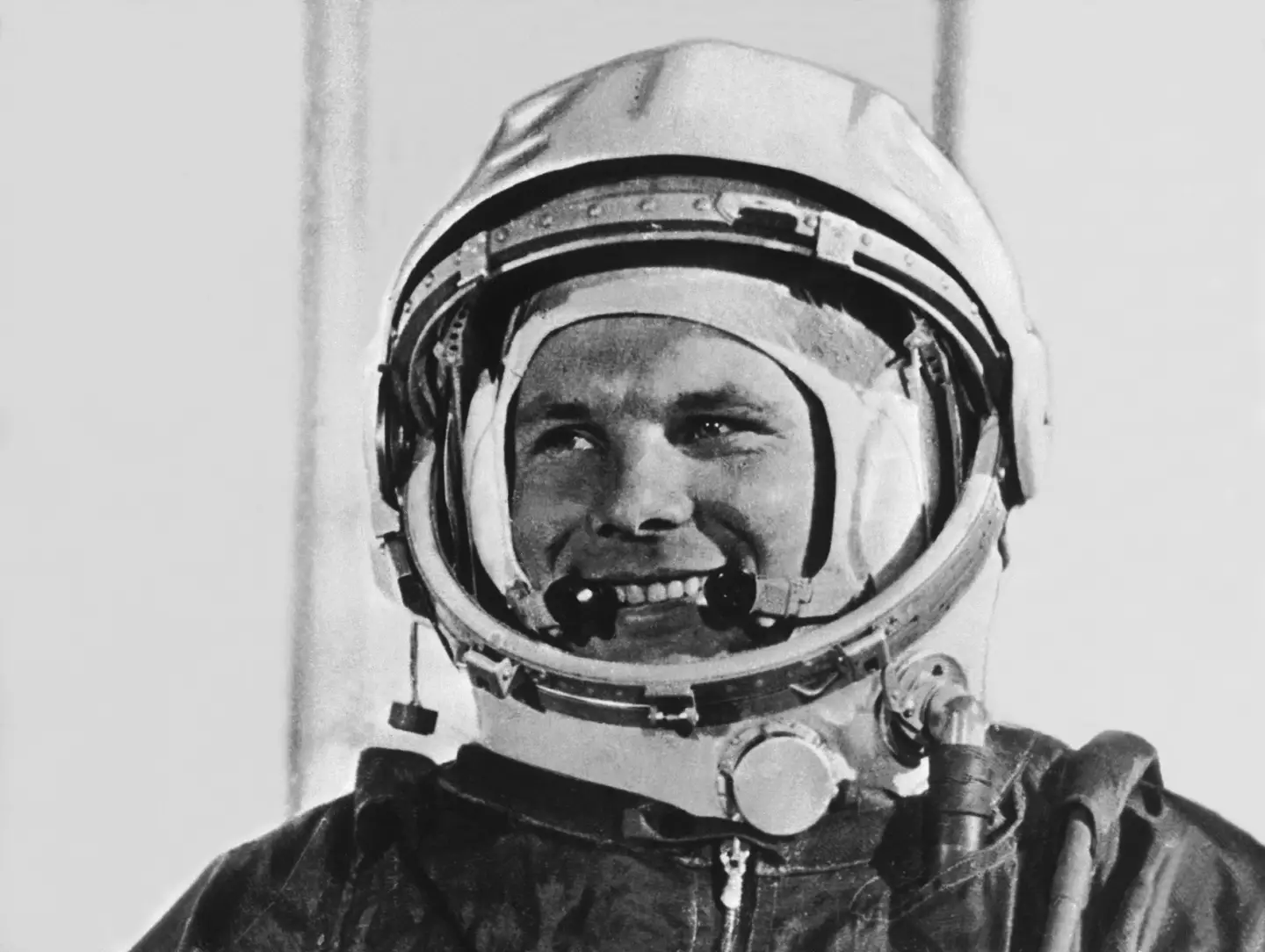
Yuri Gagarin was the first person to enter space (Keystone-France/Getty)
Talking to Big Think, he said: “When I looked out the window of the International Space Station, I saw the paparazzi-like flashes of lightning storms, I saw dancing curtains of auroras that seemed so close it was as if we could reach out and touch them. And I saw the unbelievable thinness of our planet’s atmosphere.
“In that moment, I was hit with the sobering realization that that paper-thin layer keeps every living thing on our planet alive.
“I saw an iridescent biosphere teeming with life, I didn’t see the economy. But since our human-made systems treat everything, including the very life-support systems of our planet, as the wholly owned subsidiary of the global economy, it’s obvious from the vantage point of space that we’re living a lie.”
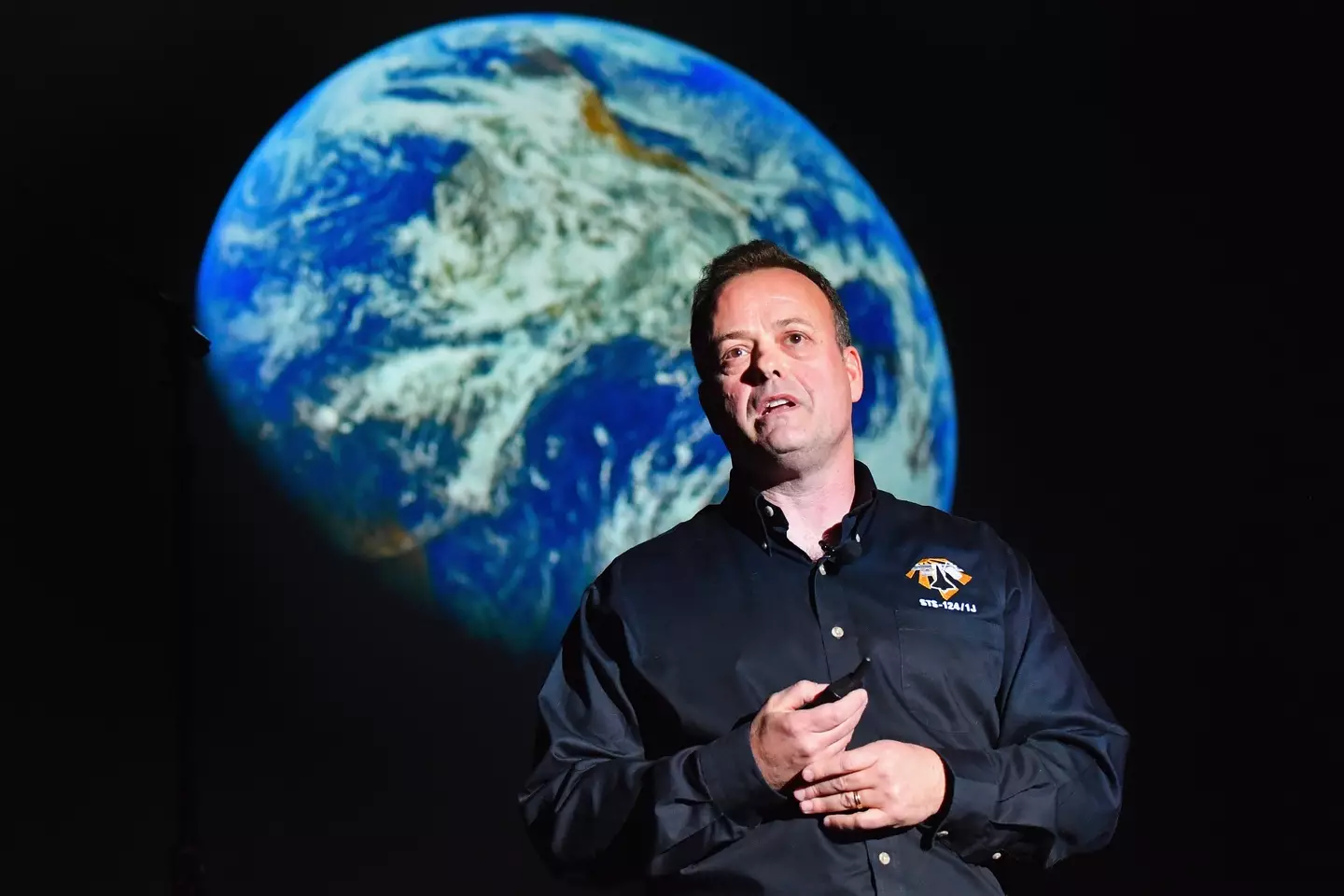
Astronaut Ron Garan has talked about his experience with the overview effect (Erika Goldring/Getty Images)
Since returning back to Earth, Garan has become passionate in changing people’s mindsets away from the economy and turning their attention to the planet.
Actor William Shatner also wrote about a similar experience when he traveled to space, writing: “It was among the strongest feelings of grief I have ever encountered.
“The contrast between the vicious coldness of space and the warm nurturing of Earth below filled me with overwhelming sadness. Every day, we are confronted with the knowledge of further destruction of Earth at our hands: the extinction of animal species, of flora and fauna … things that took five billion years to evolve, and suddenly we will never see them again because of the interference of mankind.”
Environmental issues facing the planet are known to become a main concern after viewing Earth from space.
Garan went on to add: “We’re not going to have peace on Earth until we recognize the basic fact of the interrelated structure of all reality.”

It’s a spectacle only a few are privy to — enjoying a glimpse of our planet from the International Space Station or an orbiting spacecraft.
Seeing our world from that view is bound to put things into perspective, and make you question life back on solid ground. And that’s exactly what happened to one cosmonaut during his time up above.
Yuri Gagarin was a Soviet pilot and cosmonaut who made history by becoming the first human to travel to space over 63 years ago in 1961.
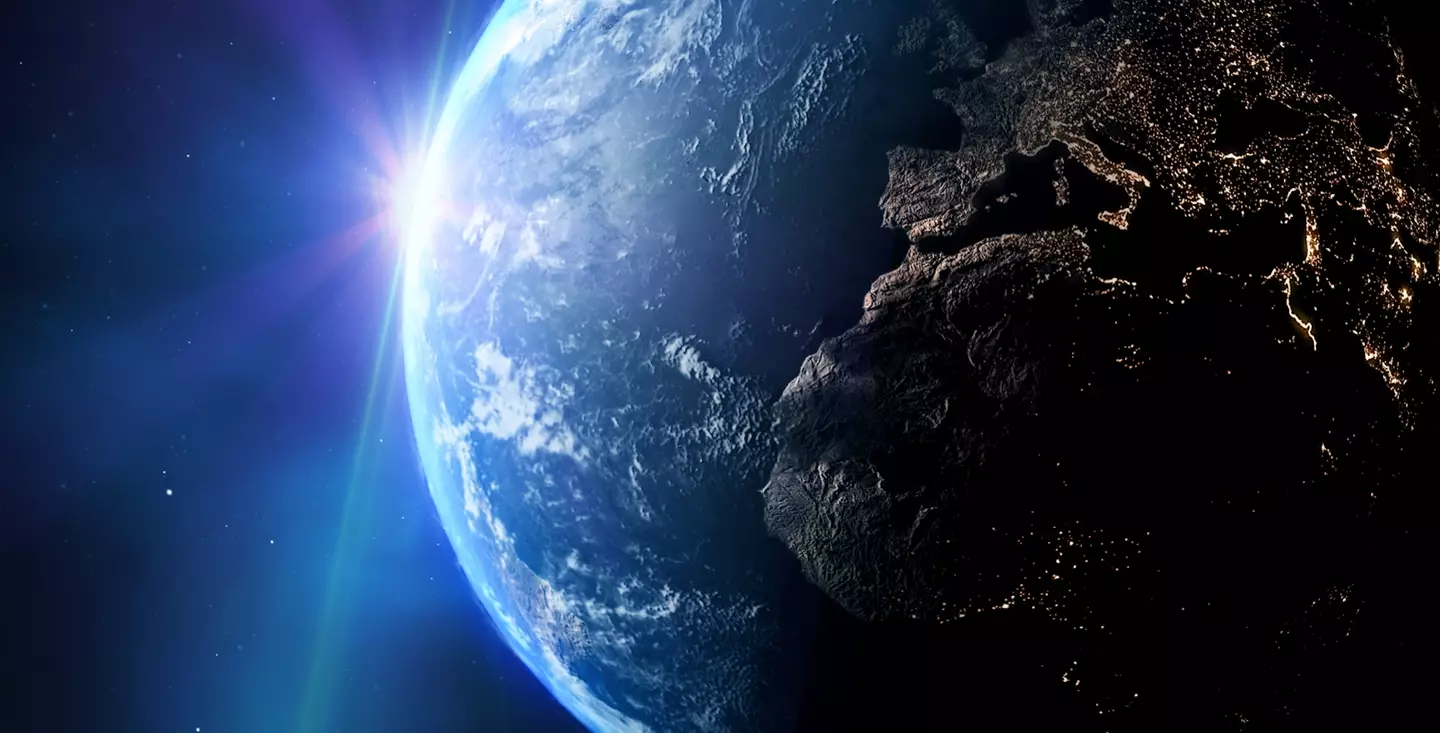
Viewing the Earth from space can be pretty overwhelming
Once there, he experienced what scientists now refer to as the ‘overview effect’ — a cognitive shift that some astronauts report having experienced while viewing Earth from space.
Scientists say the effect causes an overwhelming appreciation and connection to other people and to Earth as a whole, potentially changing the observer’s own value system.
The effect is known to make all worldly worries seem totally insignificant as the astronaut views the Earth as one united planet.
Another astronaut who experienced this phenomenon is Ron Garan who spent 178 days in space.
Talking to Big Think, Garan said: “When I looked out the window of the International Space Station, I saw the paparazzi-like flashes of lightning storms, I saw dancing curtains of auroras that seemed so close it was as if we could reach out and touch them. And I saw the unbelievable thinness of our planet’s atmosphere.
“In that moment, I was hit with the sobering realization that that paper-thin layer keeps every living thing on our planet alive.
“I saw an iridescent biosphere teeming with life, I didn’t see the economy. But since our human-made systems treat everything, including the very life-support systems of our planet, as the wholly owned subsidiary of the global economy, it’s obvious from the vantage point of space that we’re living a lie.”
Garan’s experience certainly did change his perspective on life. Since returning to Earth he’s dedicated his time to turning people’s attention away from the economy and towards the planet.

Yuri Gagarin was the first man in space and experienced this overwhelming effect (Keystone-France/Contributor / Getty)
It’s not just astronauts and cosmonauts who have experienced this overwhelming effect though. Actor William Shatner also wrote about a similar experience when he traveled to space: “It was among the strongest feelings of grief I have ever encountered.
“The contrast between the vicious coldness of space and the warm nurturing of Earth below filled me with overwhelming sadness. Every day, we are confronted with the knowledge of further destruction of Earth at our hands: the extinction of animal species, of flora and fauna … things that took five billion years to evolve, and suddenly we will never see them again because of the interference of mankind.”
Incredibly, environmental issues seem to be most prominently pushed to the front of peoples’ minds upon viewing Earth from space.
Cosmonaut Sergei Krikalev was on a year-long space mission when he received news from back home that the Soviet Union had dissolved.
Krikalev’s mission was originally planned to last five months, but the political upheaval back on Earth threw everything into chaos.
The Baikonur Cosmodrome and the planned landing site were now part of the newly independent Kazakhstan. During the political chaos, officials were left scrambling to figure out how to bring the cosmonaut home, or if he even could.
Trapped aboard the Mir Space Station, he finally made his way back down to Earth in March 1992.
In a 2015 interview with the Guardian, Krikalev explained what his first emotion was when he finally touched down on solid ground.
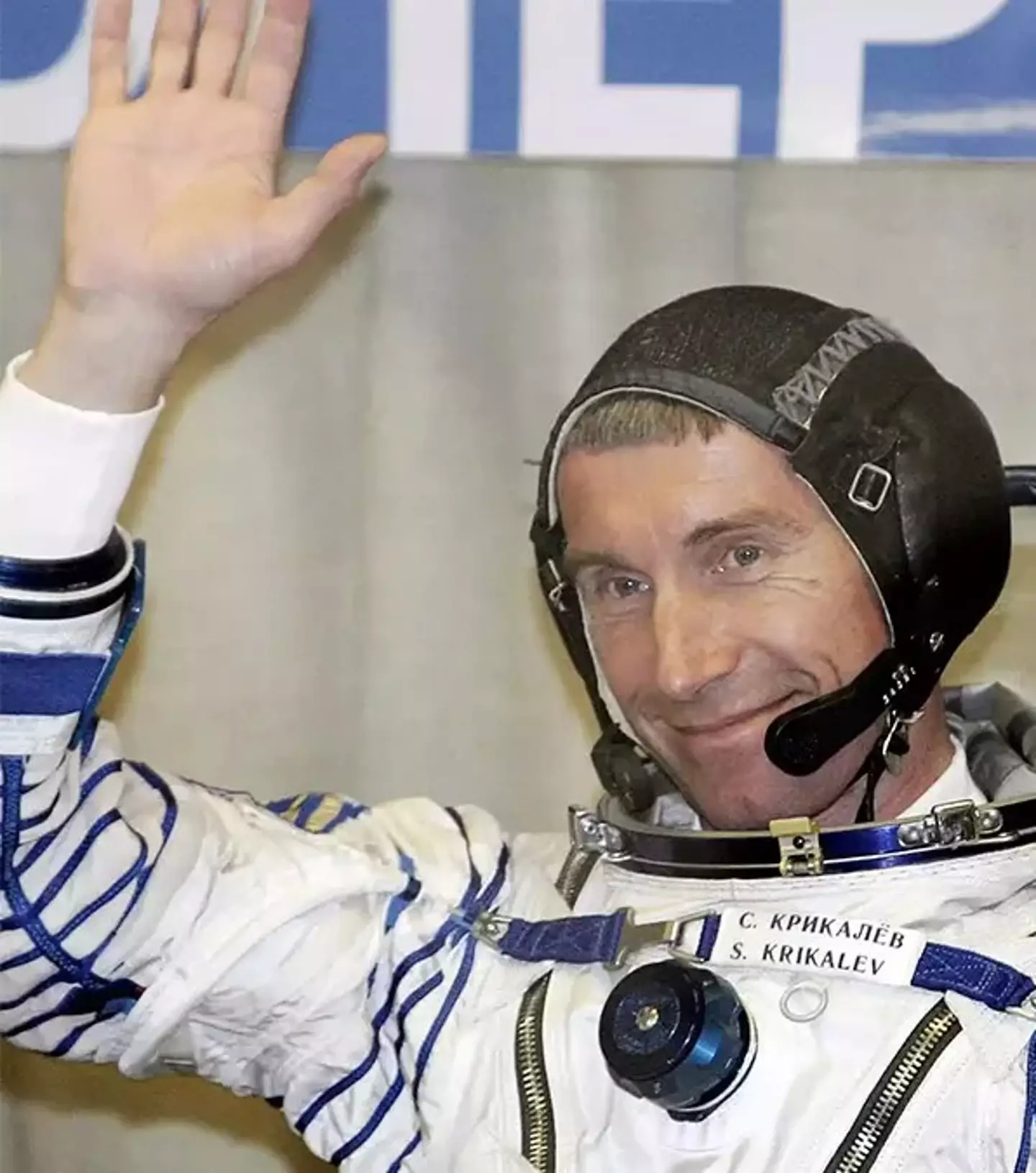
Krikalev was on a year-long space mission when he heard the news (MAXIM MARMUR/AFP via Getty Images)
“It was a long process and we were getting the news, not all at once, but we heard about the referendum, for example,” the cosmonaut described his experience.
“I was doing my job and was more worried about those on the ground – our families and friends – we had everything we needed!”
Krikalev went on to say: “I think I felt satisfaction that I had done my job, and done it well. The second one was a sort of relief as I had held a huge responsibility for many months.”
When Krikalev returned to Earth, the Soviet Union was gone and his home was no more. However, he became known as the ‘last Soviet citizen’ because of his unique situation.
Believe it or not, it wasn’t his final time in space.
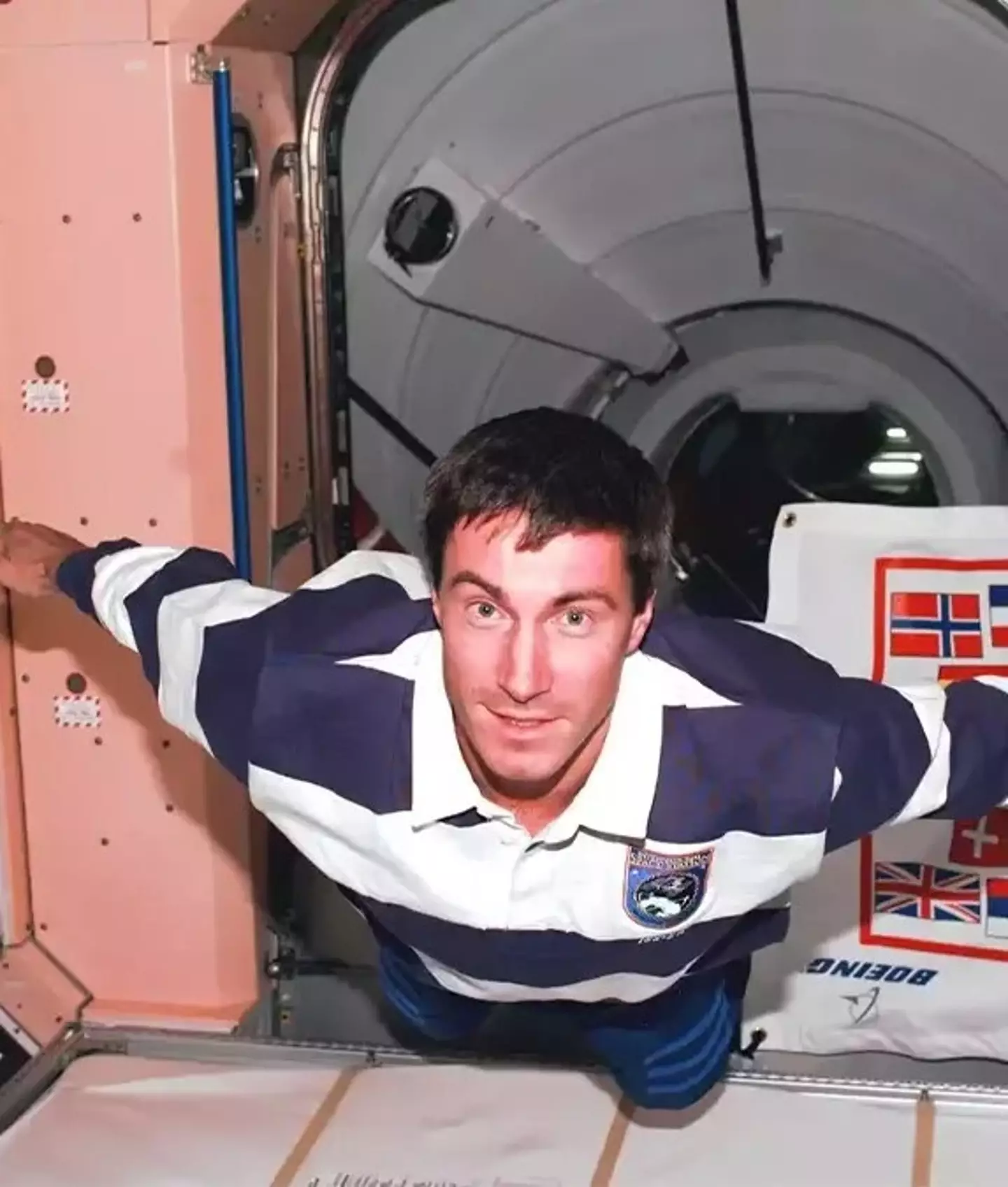
Krikalev returned to space after his first stint (NASA)
In 1994, he returned to orbit as part of the first joint US-Russian Space Shuttle Mission.
In December 1998, he also became the first person to enter the International Space Station along with NASA astronaut Robert Cabana.
Together, the pair were tasked with powering up the US module Unity.
Over his career, Krikalev spent a staggering 804 days, 9 hours, and 39 minutes in space – once holding the record for the most time spent off Earth.
But due to the amount of time Krikalev had spent in space, where he was travelling at high velocities, he also experienced time dilation.
This phenomenon is when time slows down at higher velocities, leading him to be 0.02 seconds younger than other people born at the same time as him.

The most popular choice of all, however, is obviously an astronaut.
After all, what could be cooler than blasting off hundreds of thousands of miles in a giant spaceship and discovering everything space has to offer?
Of course, you may come across a few speed bumps along the way, like NASA astronauts Bruce Wilmore and Sunisa Williams, who became stranded on the International Space Station after the Boeing Starliner that was supposed to bring them home suffered technical problems.
But, being able to see Earth from thousands of miles away would surely be worth it, right? Many cosmonauts have reported that the spectacular view changed their perspectives on life.
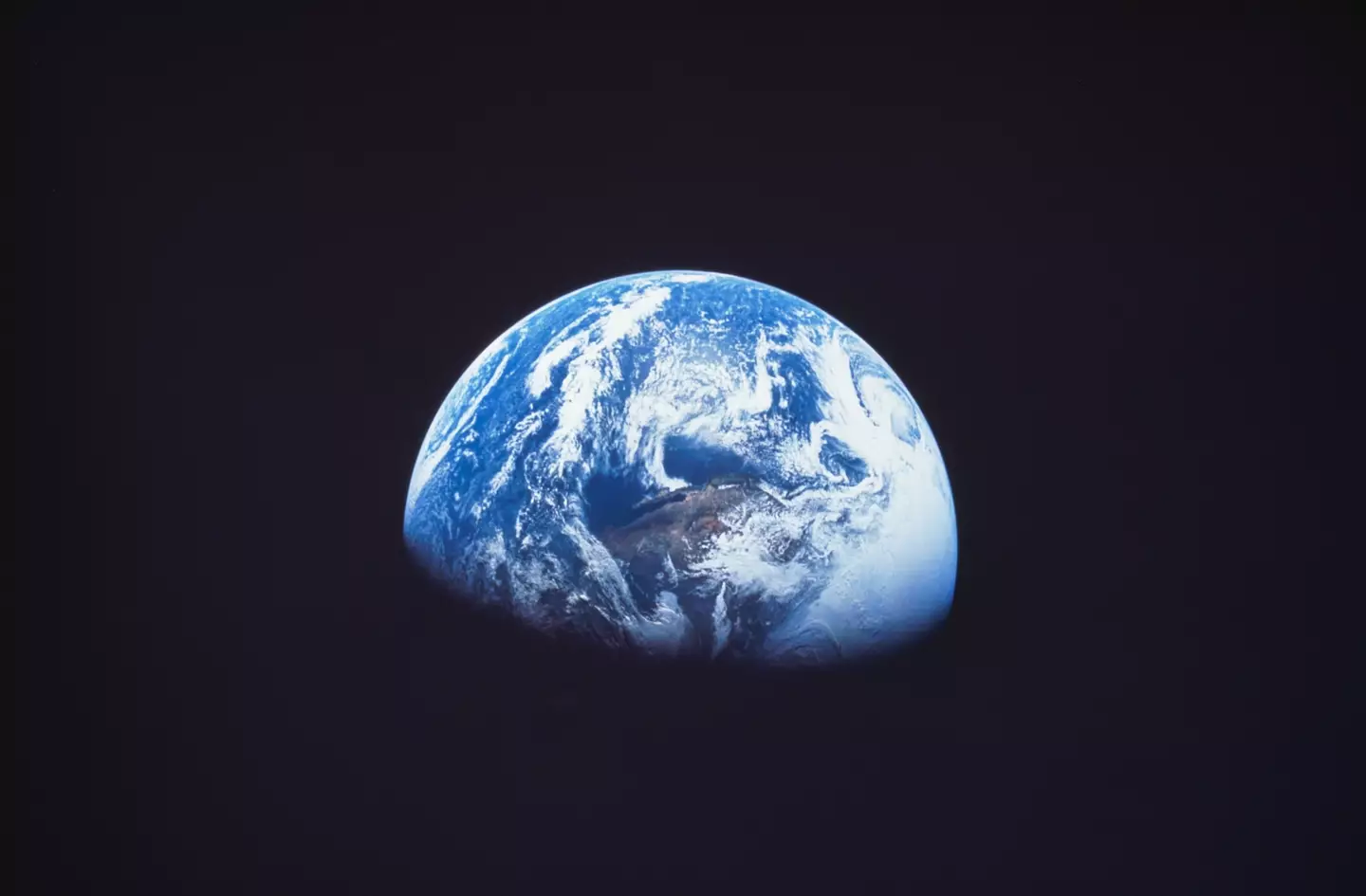
Seeing Earth from space is known to cause the ‘overview effect’ (Getty Stock Images)
Yuri Gagarin was a Soviet pilot and cosmonaut who made history by becoming the first human to go to space over 63 years ago.
Once there, he experienced what scientists now refer to as the ‘overview effect’, a cognitive shift that some astronauts report to have experienced while viewing Earth from space.
It’s said to cause an overwhelming appreciation and connection to other people and to Earth as a whole and can change the observer’s own value system.
It’s an effect that is known to make worldly worries seem insignificant and displays Earth as one united planet.
Ron Garan is another astronaut who experienced this phenomenon after spending 178 days in space.
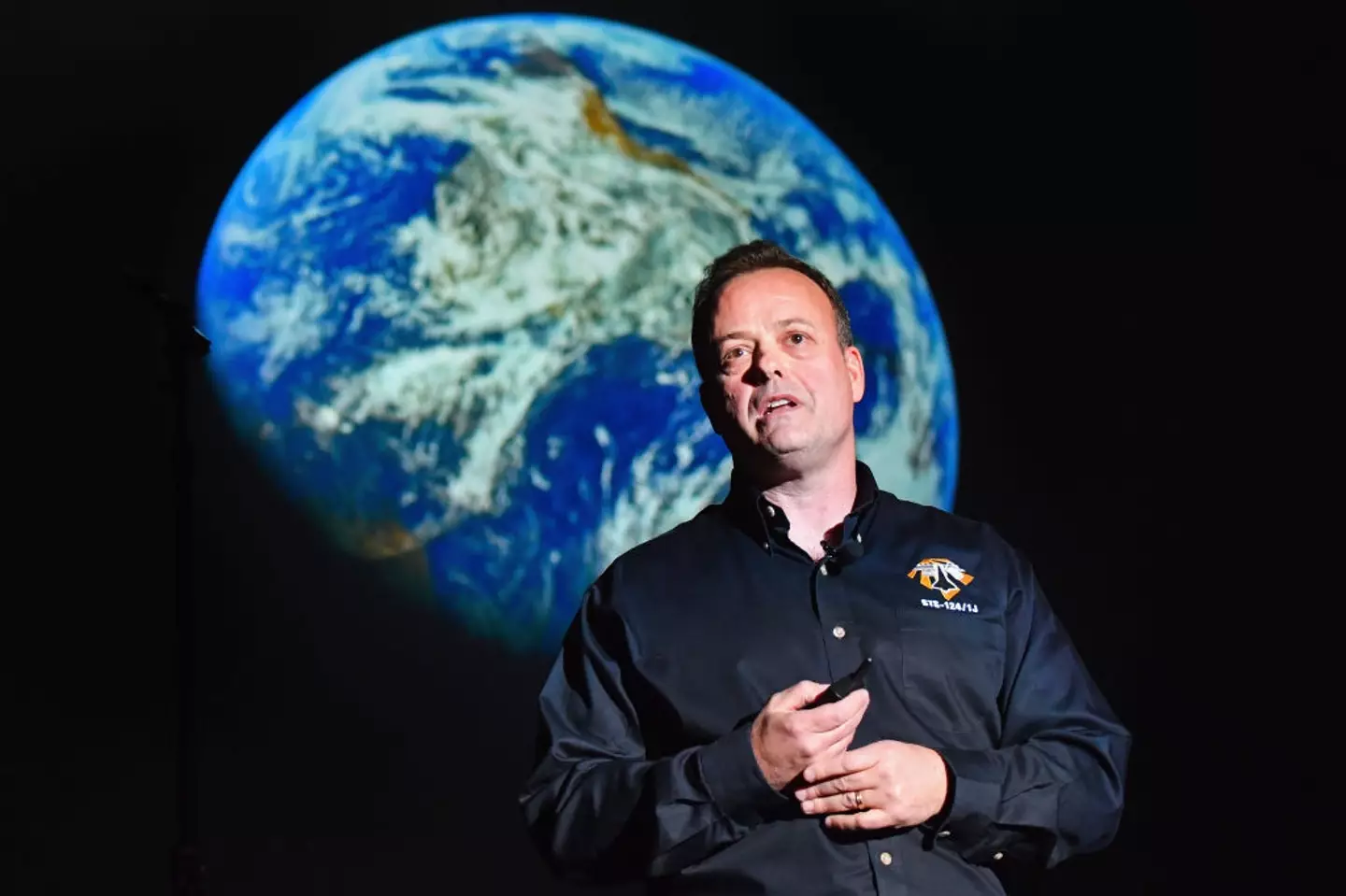
Astronaut Ron Garan has talked about his experience with the overview effect (Erika Goldring/Getty Images)
Talking to Big Think, he said: “When I looked out the window of the International Space Station, I saw the paparazzi-like flashes of lightning storms, I saw dancing curtains of auroras that seemed so close it was as if we could reach out and touch them. And I saw the unbelievable thinness of our planet’s atmosphere.
“In that moment, I was hit with the sobering realization that that paper-thin layer keeps every living thing on our planet alive.
“I saw an iridescent biosphere teeming with life, I didn’t see the economy. But since our human-made systems treat everything, including the very life-support systems of our planet, as the wholly owned subsidiary of the global economy, it’s obvious from the vantage point of space that we’re living a lie.”
Garan then went on to add: “We’re not going to have peace on Earth until we recognize the basic fact of the interrelated structure of all reality.”

Maybe people look to the stars and dream of a career in space, but very few are actually lucky enough to get the chance.
Blasting off beyond our atmosphere isn’t for the faint-hearted and now astronauts have shared their thoughts on what the worst part of space travel is.
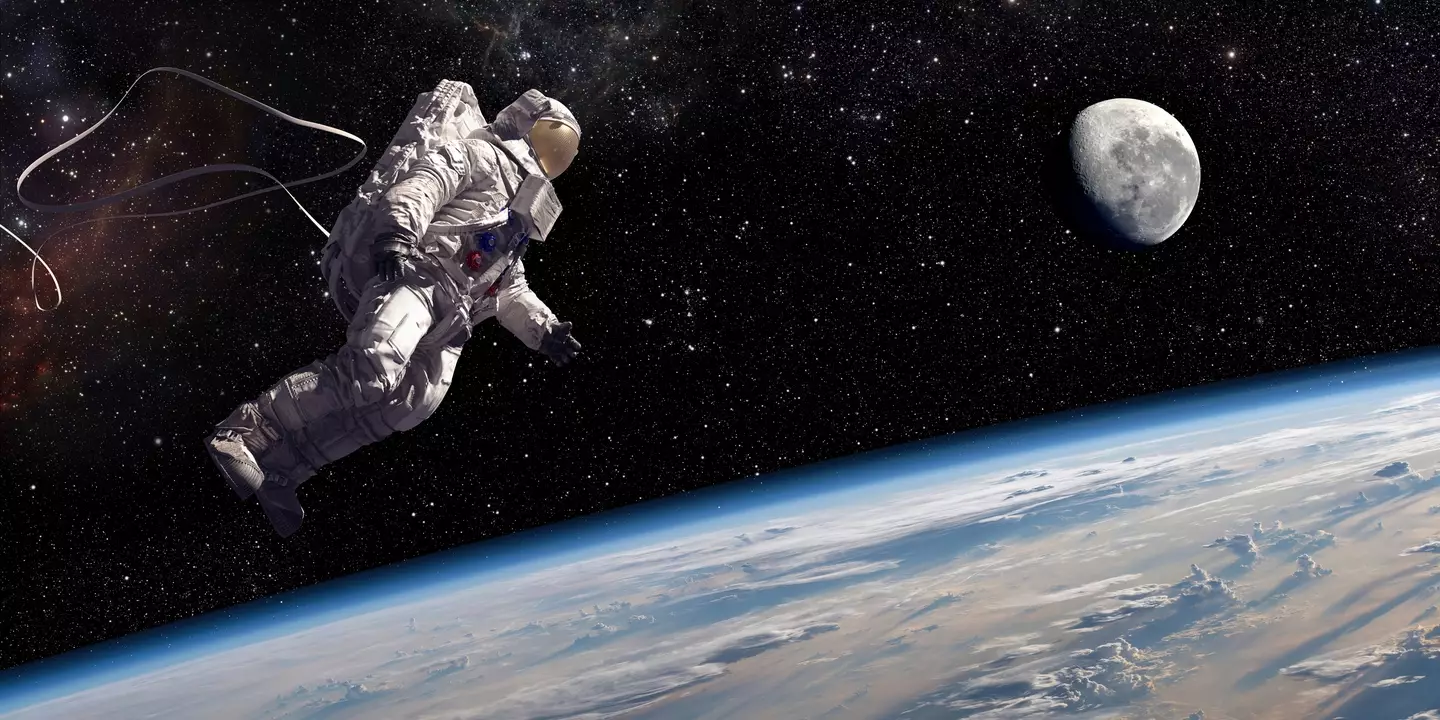
Astronauts offer some insight into their unusual job (peepo/Getty Images)
While you might think that take off is one of the scariest parts of being an astronaut, they say otherwise.
In fact, astronauts who have been to space say that it’s the return back down to Earth that is the ‘most terrifying’.
Many have also said that it’s the ‘most dangerous thing’ they do during their mission.
A group of astronauts spoke out during the National Geographic documentary titled One Strange Rock.
There, they shared their experiences of landing back home after a mission in space.
One said: “During re-entry, the window seat is… interesting.”
They went on to reveal that if you peer out of the window during the re-entry into the Earth’s atmosphere, then you’ll be treated to a sight of ‘orange and purple flames of 3,000 degrees’, which might not be the most comforting sight when hurtling towards the ground.
They went on to say: “That’s pretty freaking scary.”
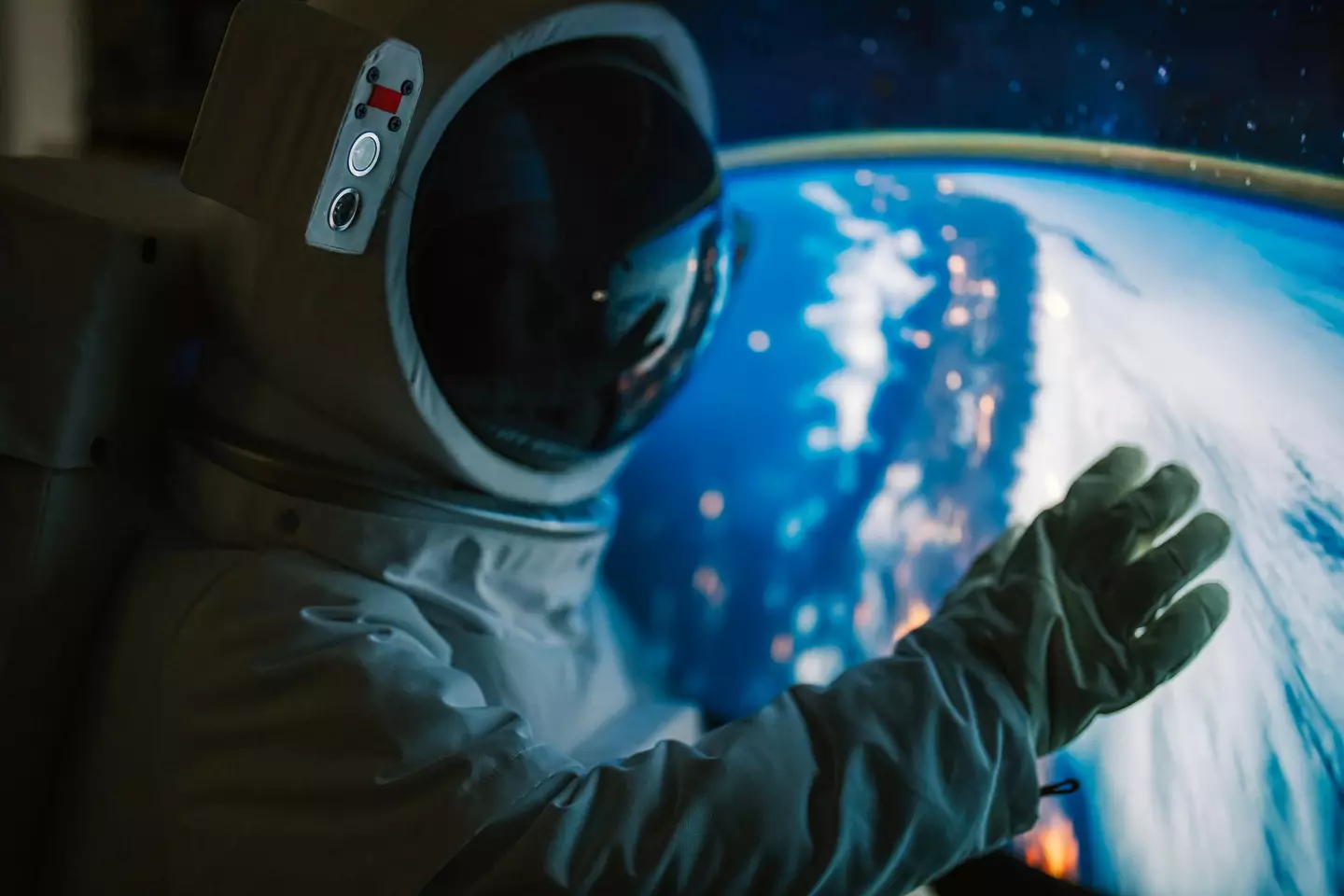
Astronauts say returning to Earth is the scariest part about space travel (Edwin Tan/Getty Images)
Another astronaut added: “Flying the Russian Soyuz is a little bit, like, maybe, flying a meteorite home.”
What happens during re-entry from space?
As the spacecraft plummets down from orbit, it reaches speeds of 17,500 mph.
The spacecraft has the same air-pressure and composition as Earth at sea level, so the astronauts are unaffected by the extreme change in their environment.



